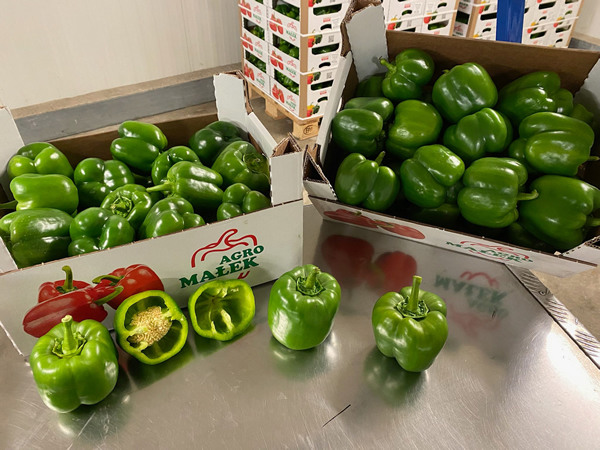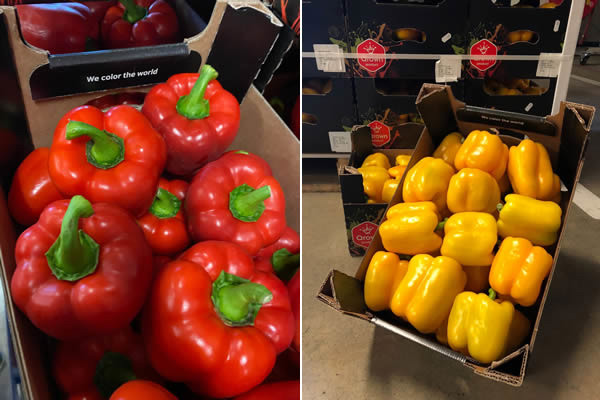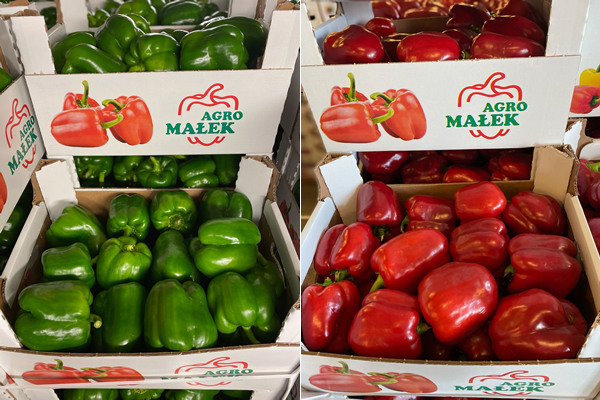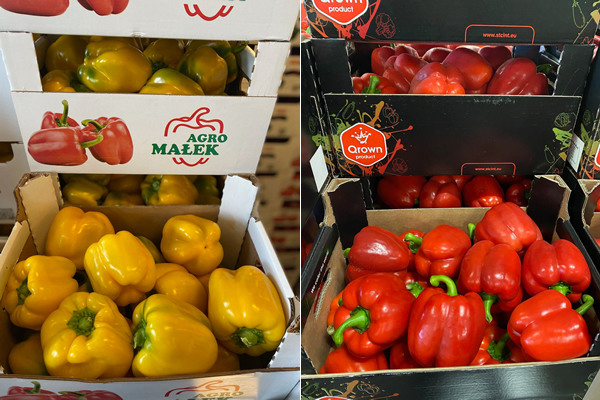The Polish pepper season kicked off at StC International back in week 25 with the first green peppers, and about four weeks ago the colours have been added. "Sales have been a little less smooth than in previous years, because the peak of the Dutch and Polish pepper season coincided," says account manager Marek Knop.

"Now that the summer vacations have ended almost everywhere, I also expect demand to pick up. "We see good demand from Germany, Romania, the Czech Republic, Italy and also Scandinavia. Last year we had a bit more demand from Spain and Portugal, but that demand is lagging behind for now," Marek says. He says Polish yields are higher than last year, but the biggest volumes remain on the Polish market where there are many promotions within domestic supermarkets.

The Polish pepper season traditionally ends at the end of October. Unlike Dutch high-tech cultivation, Polish pepper cultivation still mostly takes place in plastic tunnel greenhouses. Marek does not expect this to change either. "Pepper cultivation has taken place in tunnels for more than 40 years, and despite some trials in glass greenhouses, this development has never really taken off in Poland."

Because Polish peppers are usually a lot cheaper than Dutch ones, Marek says they are an interesting alternative for many customers. StC sources Polish peppers mainly from the grower's association Agro Malek. The Dutch marketing organisation carries the company's premium brand Qrown, among others, whose stems are cut to select the best peppers. "This results in a uniform product and that is not always common with Polish peppers," he said.

In total, the Polish pepper acreage covers some 600 hectares. The vast majority of pepper cultivation is located in the Radom region. According to Marek, the average area per grower is at most 5 hectares. The vast majority of peppers (70-80%) are red peppers, with yellow making up about 10% of the total share. There are no separate green varieties, but these are harvested from the colour peppers. "In addition, we also feed more and more specialities, such as the Capia, Sweet Bite and Palermo from Poland. I definitely see further growth in that."
 For more information:
For more information:
Marek Knop
StC International
Tel: +31 174 752 953
M: +31 645 074 930
m.knop@stcint.eu
www.stcint.eu
